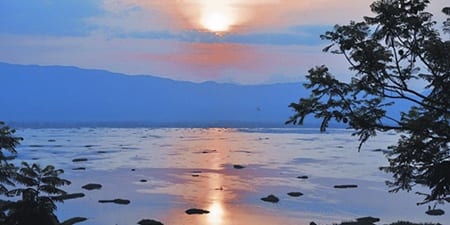How ‘responsible’ is tourism at Loktak Lake?
By Kahini Chakraborty
Located near Moirang, the Loktak Lake, which is the largest freshwater lake in North-east India, has always been famous for the phumdis (heterogeneous mass of vegetation, soil, and organic matter at various stages of decomposition). This lake also plays an important role in the economy of Manipur as it serves as a source of water for hydropower generation, irrigation and drinking water supply. But last year, when this reporter visited Manipur to attend the first eco-tourism conclave organised jointly by EcoTourism Society of India (ESOI) and the Government of Manipur, it was shocking to see the nearly depleting number of phumdis in Loktak Lake to make way for new development projects.
The lake and its surrounding areas are unique and rich in heritage. From a tourism viewpoint, the places in and around the Loktak Lake area are a state tourism asset but entangled with controversies. The fate of both Loktak Lake and the communities in and around the lake has become increasingly uncertain with new ‘development’ ventures. As reported on April 8, 2014, Manipur Tourism is developing tourist destinations and tourist circuits with financial assistance from the ministry of tourism (MoT), Government of India and the Manipur tourism department. With the support of MoT and the state tourism department, it is implementing two mega projects centering on the important tourist destinations of Manipur – Sendra, Loktak Lake, Takmu and Khongjom-Kaina-Marjing. Apart from building tourist resorts, cafeteria at these places, these mega projects will cater to the development of surrounding areas. Speaking at the Manipur Tourism Conclave organised by ESOI and Manipur Tourism in Imphal, VK, Duggal, governor of Manipur said, “The state tourism department is working in a systematic and sustained way for harnessing the tourism potential of Manipur. The foundation stone for the integrated cable car ropeway and lakeside development at Loktak Lake was laid recently, which will give a boost to the tourism industry.” A comprehensive Tourism Policy is being finalised by the state government. The state tourism department is also looking at rural tourism projects.
With this plethora of activities, tourism in the area might flourish sooner or later. But needs to be known is the type of tourism and its impact on both the people and environment. Tourism development in and around the Loktak Lake area can actually be a game changer if taken up as a ‘Responsible Tourism Development Project’.


